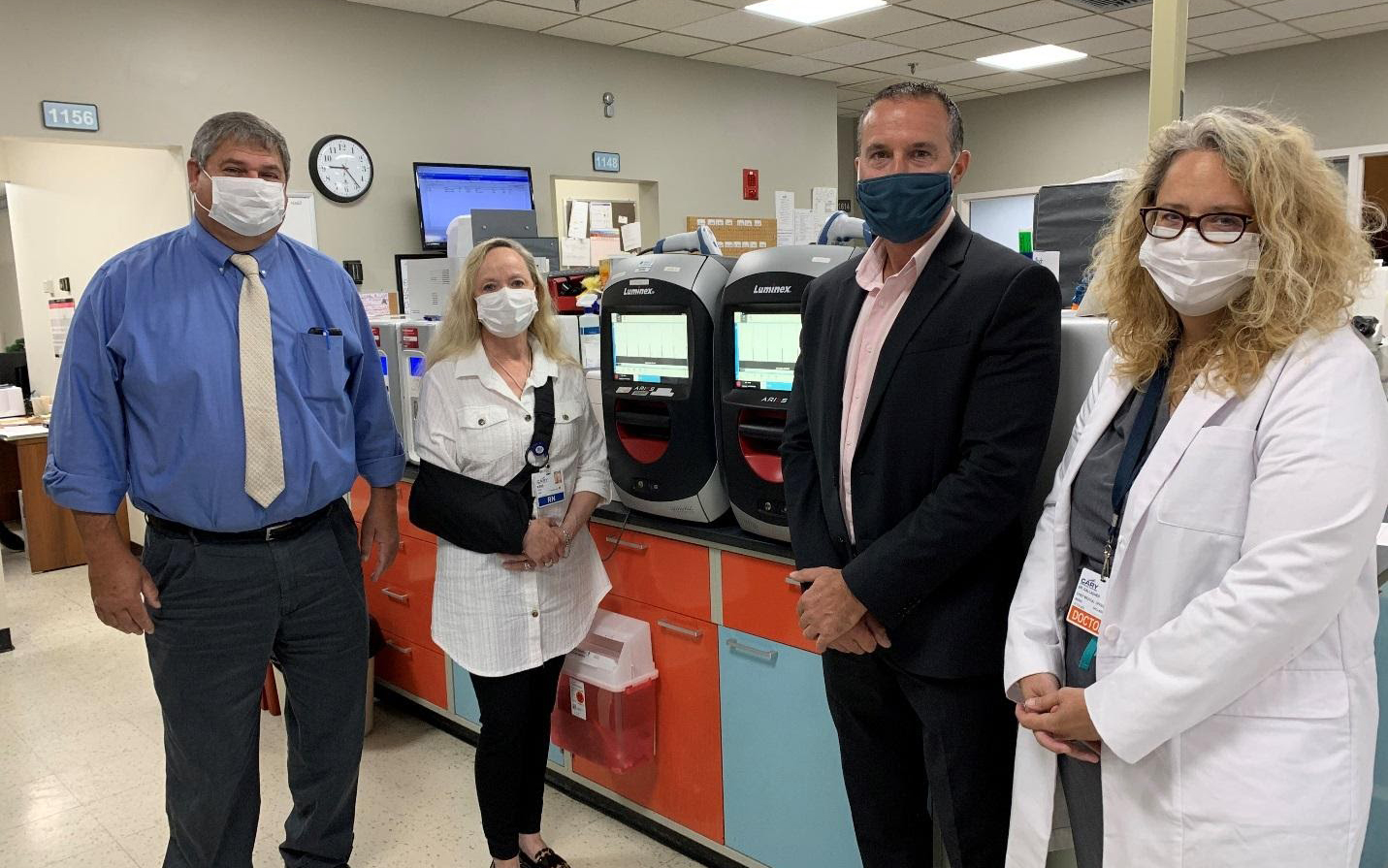
CARIBOU, Maine — The Aroostook County Federal Savings and Loan Association has made a $20,000 donation to Cary Medical Center to purchase a second COVID testing instrument.
Polymerase chain reaction technology has been a critical tool in testing for the virus. The new instrument will double the hospital’s capability to complete these tests.
The PCR machine converts the genetic material of the virus to DNA. Using enzymes and other building blocks, the DNA is copied millions of times so that if the virus is present it can be identified or determined positive.
The instrument is used in multiple ways beyond COVID-19 and can detect all kinds of bacteria, parasites, fungi and more. Regen Gallagher, DO, Cary’s chief medical officer, said the donation by the bank comes at a critical time for the hospital’s management of the pandemic.
“We are very grateful for this generous donation,” said Gallagher, who heads Cary’s pandemic response. “This allows us to run more of our COVID testing in-house and get results more quickly than when we send testing out. Thanks to the bank’s donation we can now test 12 patients at a time or run COVID testing on one machine while we run other PCR testing on the other, resulting in less delays for all kinds of PCR testing.”
Gallagher said that the hospital is now testing all patients prior to admission to the hospital, some pre-operative patients prior to surgery, and hospital employees who have symptoms and become asymptomatic and are required to have a negative test prior to them returning to work. Having a quick turnaround on tests for patients that might have COVID who are being admitted allows us to conserve personal protective equipment, which is still a limited resource.
John Swanberg, president and CEO at the Aroostook Savings and Loan, said that supporting the hospital during this critical time was a high priority.
“We wanted to do something positive during this crisis,” said Swanberg. “We felt that by donating these funds to Cary Medical Center for a second PCR machine it would increase the number of tests they could do, increasing capacity and this would be helpful to the hospital and community.”
The hospital has now trained multiple staff in the laboratory to operate the PCR machine and is able to run testing 24 hours per day seven days per week.







